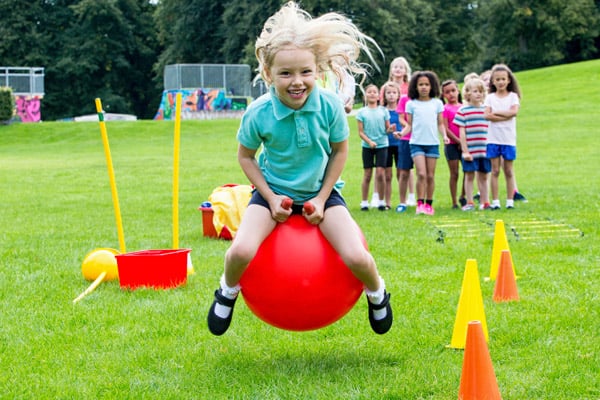Children need to play outside regularly to grow. It offers them fresh air and a place where they can use their imagination and exercise. Garden games in particular have many benefits, from making you healthier to making friends. This article discusses various garden games that children of all ages can enjoy, focusing on the latest styles for 2024.
How to choose the best garden games for children of all ages
When it comes to keeping little ones safe and having fun, choosing the right games is important. Simple games that help children learn basic motor skills, such as ‘ball rolling’ or small obstacle courses, are great for babies aged 1 to 3 years old. Children ages 4 to 5 can play more difficult games, such as “Duck, Duck, Goose” or a simple prize hunt, to help them learn new things and interact with others. Playing games like Capture the Flag or Hide and Seek with children aged 6 to 12 is a great way to help them think strategically and work together.
The best garden games for kids in 2024
In 2024, old games will be remastered with fun new features to keep the game interesting. For example, the old Games tab has been improved to include lesson features such as math-based challenges. The interactive electronic garden game that combines real-life gaming with digital elements is an example of a new invention that will appeal to tech-savvy people. DIY garden games are also becoming increasingly popular. Families create their own games using everyday objects, which is fun and brings the family closer together.
Things to consider for safe play in the garden
Safety is very important when children are involved. Make sure the play area is safe and all equipment is sturdy and well maintained. Children need constant attention, especially young ones, and setting clear, simple rules can help prevent things from going wrong. Always take the weather and environmental conditions into account. For example, don’t play outside when it’s hot or cold.
Use yard games to educate and entertain
Games in the garden are not only fun; They can also teach you something. Children can learn while having fun by playing games that teach math, writing or science. For example, in a scavenger hunt, children have to find things that start with different letters, which keeps them busy and helps them learn to read and write.
Why playing garden games is good for you
Children learn important social skills by playing garden games. Games that require players to work together toward a common goal teach them how to work together. They also help to talk to others, set rules and make plans with colleagues.
Playing outside is good for your body.
Playing garden games is good for your health. These games not only get kids moving, but can also help them improve their fine and gross motor skills. Running, jumping and throwing all strengthen muscles and improve balance.
Cool garden games for kids
Another advantage of garden games is that they help children develop their creativity. Children can make games from everyday objects, which helps them learn new things and deal with problems better. Therefore, used water bottles and rubber balls can be used in bowling.
Technology and outdoor play
Children spend a lot of time indoors thanks to technology, but it can also make outdoor play even better. GPS scavenger hunts and virtual reality games that get you moving are great ways to use technology to get kids playing and moving outside.
Organize a garden play day
Organizing a garden games day can be just as much fun as playing the games. Choose a theme, such as the Olympic Games, and make sure the space matches it. Make plans, send out invitations, and maybe even set up some small prizes to keep the fun going.
Garden games Time of year
In the summer you don’t have to play garden games. There are many games you can play in the winter, such as snowball goals or winter-themed obstacle courses. This ensures that children can play outside all year round, regardless of the weather conditions.
Garden games for people of all levels
It is important to ensure that everyone can play garden games. For children of all levels, games should be flexible so that everyone can enjoy and play them. For example, making games more accessible to children who may have coordination problems by using larger, softer balls is one approach.

